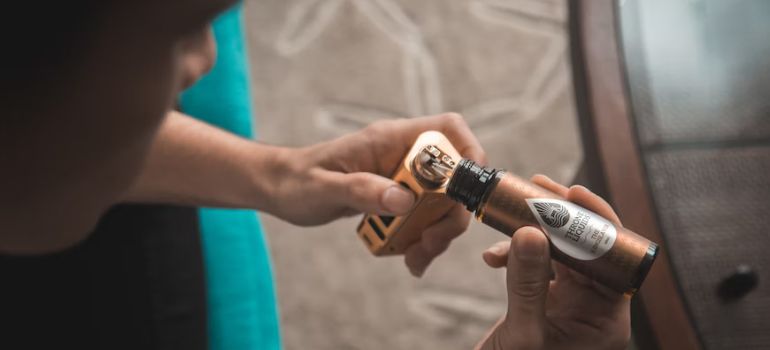After a tooth extraction, it’s important to be cautious with your vaping habits to ensure proper healing and minimize the risk of complications. Here are some steps to follow:

Table of Contents
ToggleWait for Healing:
Give your mouth time to heal before you resume vaping. Follow your dentist’s or oral surgeon’s instructions regarding when it’s safe to start vaping again. Generally, you should wait at least 24-48 hours after the extraction.
Avoid Suction:
Sucking on a vape pen can create negative pressure in your mouth, which could dislodge blood clots or interfere with the healing process. Instead of inhaling deeply, take gentle, shallow puffs to minimize the suction effect.
Choose Nicotine Levels Wisely:
If you use e-liquids with nicotine, consider reducing the nicotine level during the healing period. Nicotine can affect blood flow and may slow down the healing process.
Stay Hydrated:
Vaping can sometimes lead to dehydration. After a tooth extraction, staying hydrated is crucial for proper healing. Drink plenty of water to keep your mouth moist and facilitate the healing process.
Maintain Good Oral Hygiene:
Keep your mouth clean to prevent infection. Rinse your mouth gently with warm salt water (as advised by your dentist) after vaping to help reduce the risk of infection.
Choose Your Device Wisely:
If you have a choice, opt for a vaping device with adjustable airflow settings. This way, you can minimize the force of the inhale, reducing the risk of creating a strong suction.
Be Gentle:
Be cautious when positioning the vape device in your mouth. Avoid direct contact with the extraction site, as it could disrupt the healing process or cause discomfort.
Listen to Your Body:
If vaping causes pain, discomfort, or irritation around the extraction site, stop immediately and give your mouth more time to heal. Pain or discomfort could be a sign that you’re not fully healed yet.
Consult Your Dentist:
If you’re uncertain about whether it’s safe to vape after your tooth extraction, consult your dentist or oral surgeon. They can provide personalized advice based on your specific situation.
Conclusion
Remember, everyone’s healing process is different, and it’s important to prioritize your oral health and overall well-being during the recovery period. If you have concerns or experience any unusual symptoms, don’t hesitate to reach out to your dental healthcare provider.

